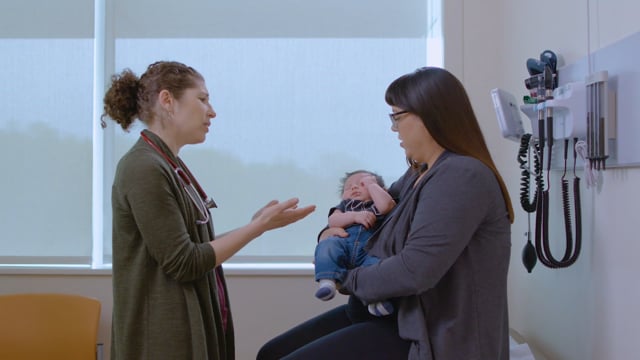- Parents Home
- Para Padres
- A to Z Dictionary
- Allergy Center
- Asthma
- Cancer
- Diabetes
- Diseases & Conditions
- Doctors & Hospitals
- Emotions & Behavior
- First Aid & Safety
- Flu (Influenza)
- Food Allergies
- General Health
- Growth & Development
- Heart Health & Conditions
- Homework Help Center
- Infections
- Newborn Care
- Nutrition & Fitness
- Play & Learn
- Pregnancy Center
- Preventing Premature Birth
- Q&A
- School & Family Life
- Sports Medicine
- Teens Home
- Para Adolescentes
- Asthma
- Be Your Best Self
- Body & Skin Care
- Cancer
- Diabetes
- Diseases & Conditions
- Drugs & Alcohol
- Flu (Influenza)
- Homework Help
- Infections
- Managing Your Weight
- Medical Care 101
- Mental Health
- Nutrition & Fitness
- Q&A
- Safety & First Aid
- School, Jobs, & Friends
- Sexual Health
- Sports Medicine
- Stress & Coping
Your Child's Vaccines: Diphtheria, Tetanus & Pertussis Vaccine (DTaP, Tdap)
What Are the DTaP and Tdap Vaccines?
The DTaP and Tdap vaccines are killed (inactivated) vaccines that are given as a series of shots to protect against:
- Diphtheria: This serious infection of the throat can block the airway and cause severe breathing problems. It spreads from person to person.
- Tetanus (lockjaw): This is an infection that affects nerves all over the body, causing severe muscles spasms. It enters the body through a cut in the skin.
- Pertussis (whooping cough): This respiratory infection causes cold-like symptoms that can lead to severe coughing and trouble breathing (the "whooping" sound happens when a child breathes in deeply after a severe coughing fit). Teens and adults can have a milder illness, with a cough that lasts a long time (usually without the “whoop”). It spreads from person to person.
Children younger than 7 years old receive DTaP, and older children and adults receive Tdap (or sometimes Td, which only protects against tetanus and diphtheria).
When Do People Get the DTaP/Tdap Vaccine?
Kids get the DTaP immunizations as a series of 5 shots at ages:
- 2 months
- 4 months
- 6 months
- 15–18 months
- 4–6 years
They get Tdap vaccine (also called the adolescent booster dose) at ages 11 to 12. Older teens and adults who haven't yet had a booster with pertussis coverage also should get it. (This is especially important for adults who will be around newborn babies, such as grandparents or other caregivers.) Then, boosters are recommended every 10 years with either Tdap or Td (only tetanus and diphtheria).
Pregnant women get the Tdap vaccine in the second half of each pregnancy, even if they've been vaccinated in the past. People who get a deep cut or severe burn may need to get a dose of DTaP, Tdap, or Td to prevent tetanus infection (depending on their age and when they got their last dose).
These vaccines can be given at the same time as other vaccines. DTaP is sometimes given on its own, and other times in combination (in the same shot) with other vaccines.
Why Are the DTaP and Tdap Vaccines Recommended?
Use of the DTaP and Tdap vaccines has virtually ended diphtheria and tetanus in childhood and has greatly reduced the number of pertussis cases.
What Are the Possible Side Effects of the DTaP and Tdap Vaccines?
The vaccines can cause mild side effects: fever; mild crankiness; tiredness; loss of appetite; vomiting (throwing up); and pain, redness, or swelling in the area where the shot was given.
Rarely, a child may have a seizure, a very high fever, or uncontrollable crying after getting a vaccine. A rare reaction in older kids is swelling of the whole arm or leg where the shot was given. And as with any vaccine, there is a small risk of fainting, and a very small chance of an allergic reaction.
When to Delay or Avoid DTaP and Tdap Vaccines
Simple colds or other minor illnesses should not prevent vaccination. Your doctor might reschedule the vaccine if your child has a more serious illness.
Talk to your doctor about whether the vaccine is a good idea if your child has had any of the following:
- a serious allergic reaction, or any allergic reaction after an earlier DTaP or Tdap shot
- severe pain or swelling of a whole arm or leg after an earlier shot
- a brain or nervous system problem, like coma or seizures
- Guillain-Barré syndrome
Your doctor might give a partial vaccine or no vaccine, or may decide that the benefits of vaccinating your child outweigh the potential risks.
Caring for Your Child After DTaP and Tdap Vaccination
For pain or fever, check with your doctor to see if you can give either acetaminophenoribuprofen, and to find out the right dose.
A warm, damp cloth or a heating pad on the injection site may help reduce soreness, as can moving or using the arm or leg.
When Should I Call the Doctor?
Call your doctor if:
- You aren't sure whether the vaccine should be postponed or avoided. Children who have had certain problems with the DTaP vaccine usually can safely get the Td vaccine.
- There are problems after the vaccination.

How Vaccines Help
Vaccines keep millions of people healthy each year by preparing the body to fight illness. Learn how vaccines help and get answers to your biggest questions about vaccines.

© 1995- The Nemours Foundation. KidsHealth® is a registered trademark of The Nemours Foundation. All rights reserved.
Images sourced by The Nemours Foundation and Getty Images.
